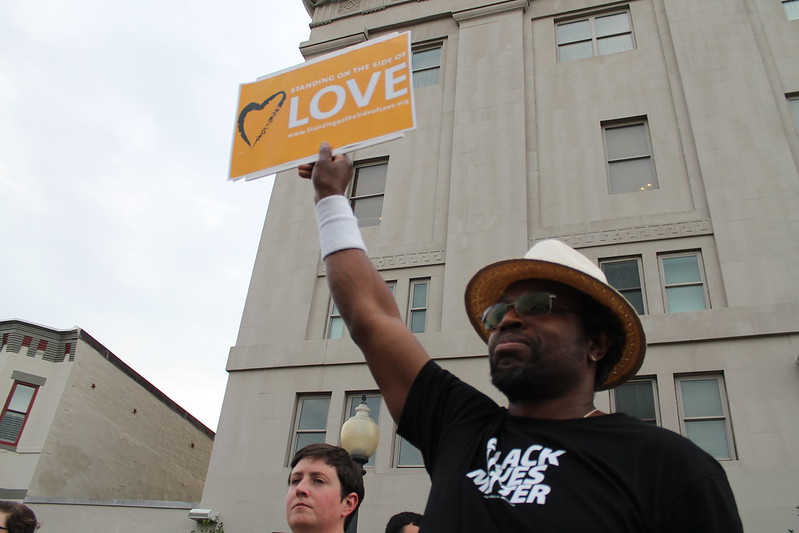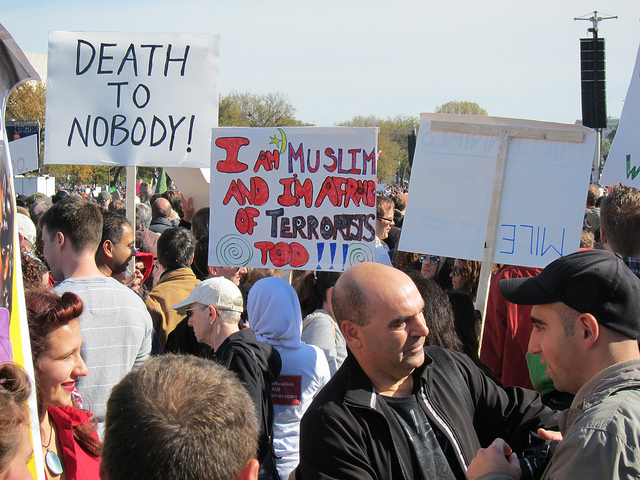In several recent surveys, Jordan and Lebanon were ranked some of the highest on a list of “most racist countries in the world” (See here and here). There are plenty of evidences for this. For example I was aghast while learning Arabic that a commonly used word for Africans is “slaves.” In my experience, the cultural hospitality and friendships we received were genuine and deep, however, living there as a minority often was difficult. As a friend elaborated “this place is constantly screaming at us, GO HOME!” The race riots in the US may be new to many but having lived in the Middle East for many years, protests and riots were a nearly every Friday event. As MLK said “…riots are the language of the oppressed.”
Ayman grew up in a middle-class suburb of Cairo and is described as a quiet book lover, disliking sports and preferring poetry. Ayman bore witness to years of government oppression on his family for their conservative political and religious views. At 15, his uncle was imprisoned, tortured and some of his friends were killed. This grievance haunted Ayman and marked him, causing a seething anger at his government. Ayman went on to medical school, served overseas as a doctor and saw the brutality of war against others of his own religious group. He returned home determined to enact change, he socialized with a crowd that promised change by violence. It was not long after he was imprisoned with others in a raid, tortured and broken. He left prison an outcast and a hardened extremist. Ayman al-Zawahiri eventually succeeded Osama bin-Laden as the leader of al-Qaeda.

What propelled Ayman into a life-commitment to violence? In my research on extremism and de-radicalization I have noticed that rarely do policing, militaristic and harsh policies by governments or prison officials move a person away from their pathway. Experts are beginning to notice however that kindness, listening, respectful debate and social and economic interventions aimed at the root-drivers of desperation may result in moderation and change (see for example Hamed el-Said’s excellent work New Approaches to Countering Terrorism). For example, Turkey and Saudi Arabia, seeking to de-radicalize imprisoned jihadis, have had success providing them with counseling, a stipend, education and their children with scholarships. Unfortunately we have precious few examples of this ‘softer’ approach. I believe the church has a leading role in alleviating suffering and breaking the processes leading to violence. In Lebanon they’ve done exactly that.
The church in the Middle East has seen thousands of new people from other backgrounds join, some of them renouncing their violent ways and leaving various violent groups like ISIS and al-Qaeda. They share that the love demonstrated by Christians, their perceived enemies, caring for their families’ practical needs began to change their minds. Jesus’ command ‘love your enemy’ is more than a ‘nice’ adage. Love, acts of mercy, listening and kindness are formidable tools to break through pain and grievance and open doors to healing.

What might have happened if Ayman was sought out by a Christian who listened to his story, acknowledged that what happened to his family was wrong, lamented with him about the ills of his society and worked with him to seek justice and speak truth? Those with grievances, like people of color suffering from years of direct and systemic discrimination, Palestinians who have lost land, honor and rights, refugees fleeing violence with no place to go and Christian and Yazidi minorities who have lost life, been enslaved, raped and killed because of their ethnicity or religion, need to be comforted, heard and helped. Their voices have not been given attention and years of oppression have led some of them to believe that riots, violence, revenge and anger are their only option left. For others, despair has taken over. To be clear, I am not equating Islamic fundamentalists with the struggle of people of color in the US context. I am however illustrating what unresolved grievance, injustice and systemic oppression can do to a person.
When threats, policing, prison and ‘kinetic’ responses are the only responses to desperate voices and actions, the result is further trauma and estrangement, and sometimes radicalization. While strength is the language of power, Christians are called to the opposite. When responses of equivocation or redirection dominate from the mouths of Christians (like “all lives matter” in response to “black lives matter” or “those Muslims just want us dead like 9/11”) or worse yet, cries for violent suppression or silence, God is dishonored and the result is further estrangement. Christians are called to be ‘minsters of reconciliation’ and bear witness in suffering, model Jesus’ posture towards Zaccheus (read more), the Phoenician woman and others who are ostracized. Loving the marginalized and oppressed like the refugee (read more) and emulating the Samaritan… should be the modus operandi of the Christian. Consider that the result of obedience to the second greatest commandment may well begin to heal the deep seething anger of the protestor, the fundamentalist on a pathway to radicalization and the broken hearted who think they have no options left.
When we are willing to enter another’s story, enter their suffering and sit for awhile… Rev. Dr. Hikmat Kashouh, a pastor in Lebanon says: “This is not just a psychological technique. It is a reflection of the nature of God.” He advocates for an incarnational “Listening, Visiting and Serving” as a proactive strategy for a church in the context of great sectarian conflict, need and great suffering.
Our Lebanese friends have perhaps the most unique lens, from a history of sectarianism, civil war, protest and societal unrest, from which to see the US racial tensions in this hour with unique compassion. They have been down this road and many have confessed their own racism, ethnocentrism and prejudice. Non-profits like the Lebanese Society for Educational and Social Development and hundreds of Arab churches are helping tens of thousands of those who are marginalized in the Middle East. The history God is writing there with the renewed vitality of the church and the breaking down of barriers between Sunni, Shia and Christian, Armenian, Lebanese, Chaldean and Syrian… is a story that can give us all hope. It remains a context of blatant racism and intense strife but the Middle Eastern church is flourishing and changing their context.
Can we learn the language of the riot and respond in love?
